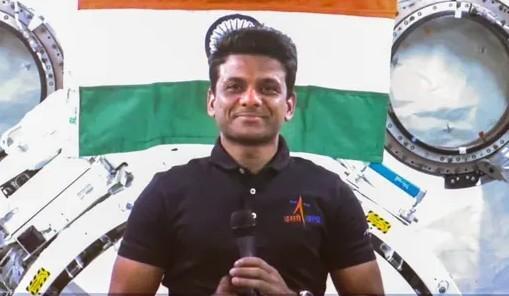
What is Muscle Loss Study that Shubhanshu is Conducting on the ISS?
Indian astronaut Shubhanshu Shukla has embarked on a crucial experiment on the International Space Station (ISS) to explore the effects of muscle degradation on skeletal muscles. This study is a significant step towards understanding how spaceflight conditions impact muscle development and finding solutions to maintain muscle strength for both astronauts and individuals with muscle-degenerative diseases on Earth.
The Importance of Muscle Maintenance in Space Travel
Long-duration space missions pose a significant threat to the physical health of astronauts. One of the primary concerns is muscle loss, which can lead to decreased mobility, reduced bone density, and increased risk of injury. The effects of microgravity on the human body are well-documented, and researchers have identified muscle degradation as a critical area of study.
The ISS Experiment: Understanding Muscle Loss in Space
Shubhanshu Shukla, along with other AX-4 astronauts, is conducting a comprehensive experiment to understand the mechanisms behind muscle loss in space. The study focuses on the effects of microgravity on skeletal muscle development, with the goal of developing strategies to mitigate muscle loss and maintain muscle strength.
The experiment involves using a specialized device to measure muscle protein synthesis and degradation in astronauts. This information will help researchers understand how microgravity affects the muscle-building process and identify potential countermeasures to maintain muscle mass.
The Significance of this Study
The findings from this study will have far-reaching implications for both space travel and medical research. For astronauts, the results will help develop effective countermeasures to maintain muscle strength during long-duration missions, ensuring their health and well-being during extended space travel.
On Earth, the study’s findings can lead to the development of new treatments for muscle-degenerative diseases, such as muscular dystrophy and sarcopenia. These conditions affect millions of people worldwide, causing muscle wasting and weakness, which can significantly impact quality of life.
The AX-4 Mission: A Global Outreach Effort
The AX-4 mission, which includes Shubhanshu Shukla and other astronauts, is not only focused on conducting critical research but also on promoting global outreach and engagement. The mission aims to inspire young minds and foster a greater appreciation for space exploration and scientific research.
As part of the mission, the astronauts will participate in educational activities, such as live webinars and video conferences, to connect with students and researchers around the world. This global outreach effort will help promote STEM education and encourage the next generation of scientists and engineers to pursue careers in space-related fields.
Conclusion
Shubhanshu Shukla’s muscle loss study on the ISS is a critical step towards understanding the effects of microgravity on skeletal muscle development. The findings from this study will have significant implications for both space travel and medical research, helping to develop effective countermeasures to maintain muscle strength and improve the overall health of astronauts and individuals with muscle-degenerative diseases.
As we continue to push the boundaries of space exploration, it is essential that we prioritize the health and well-being of our astronauts. This study is a testament to the dedication and expertise of Indian astronauts like Shubhanshu Shukla, who are working tirelessly to advance our understanding of the human body in space.
Source:






